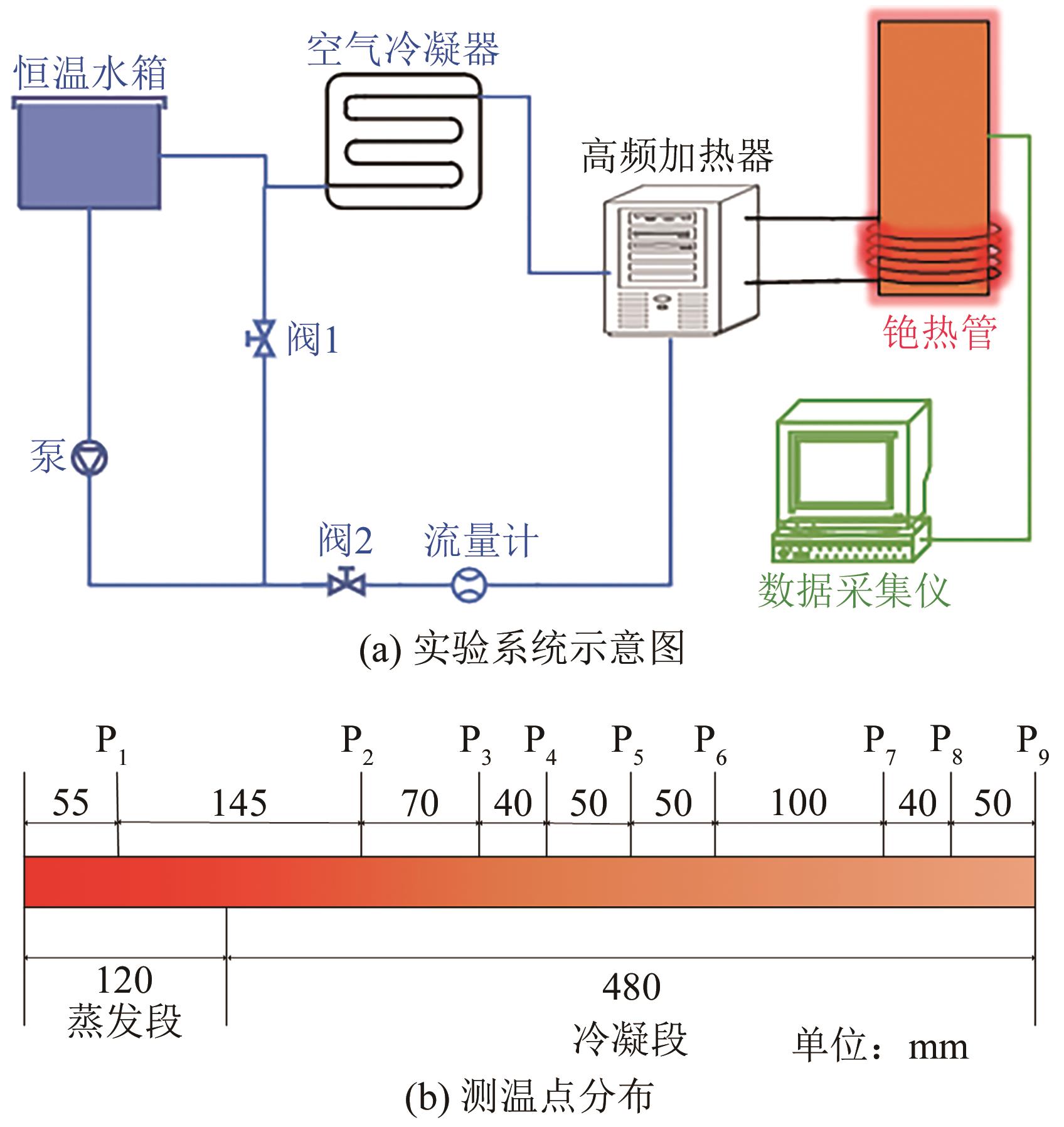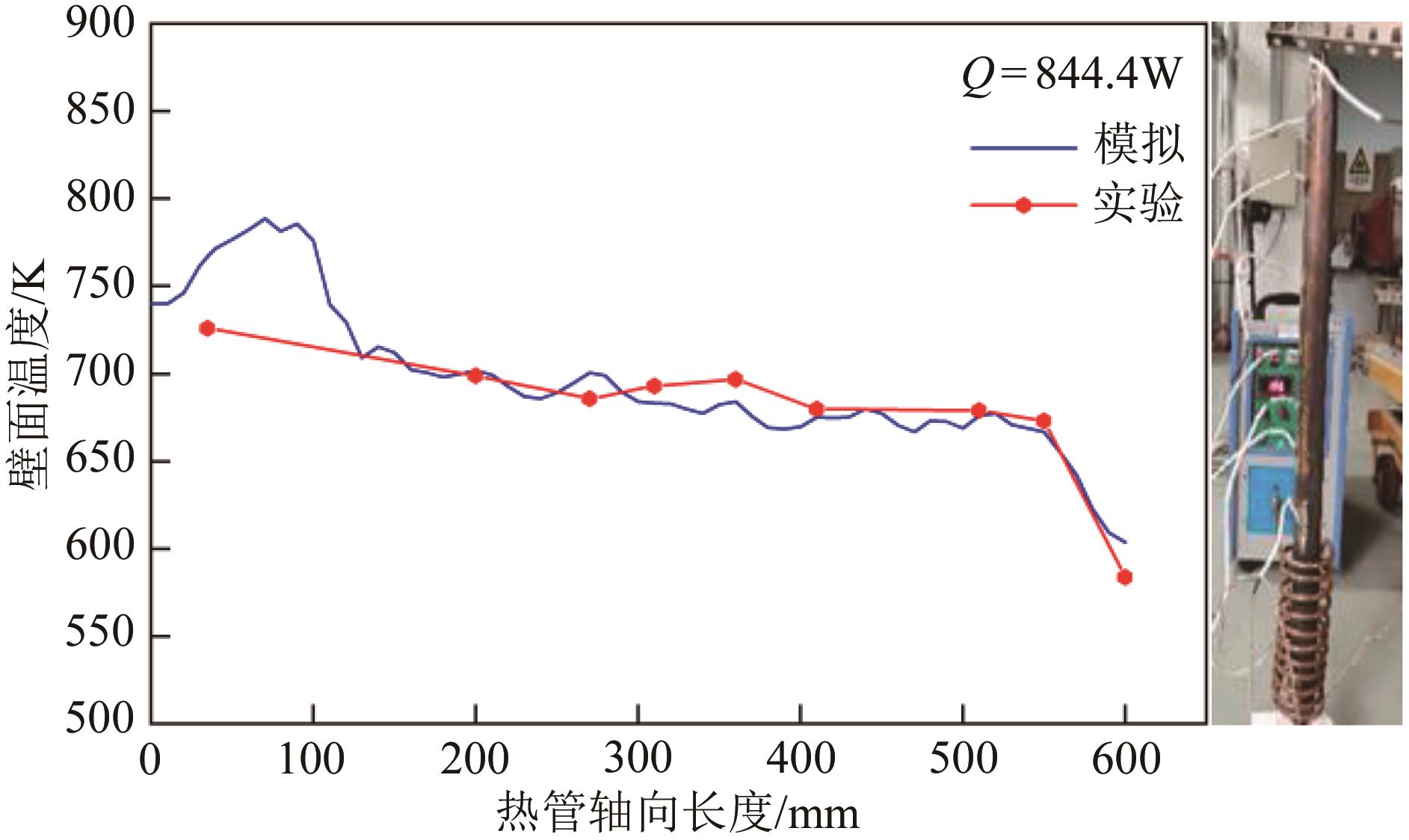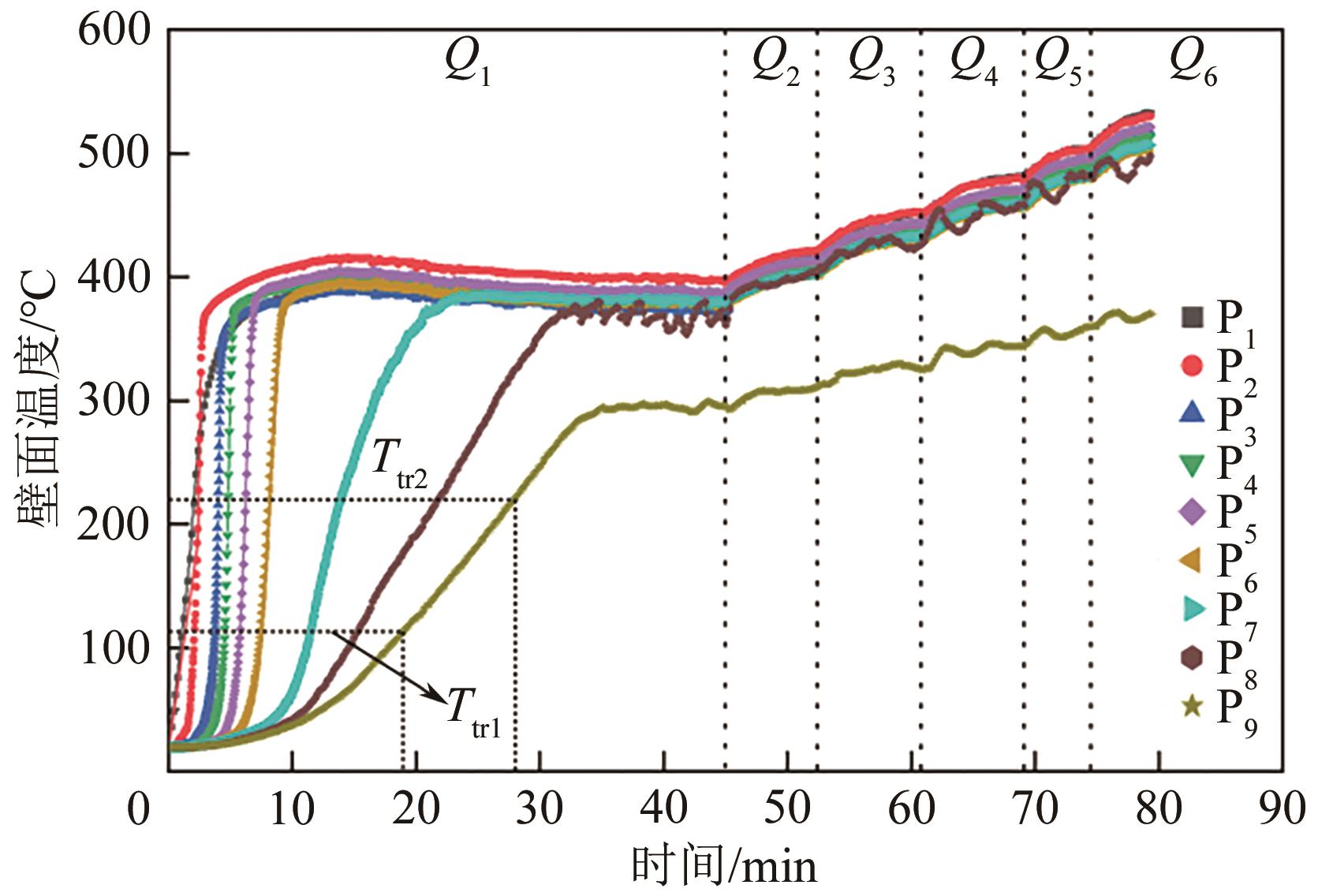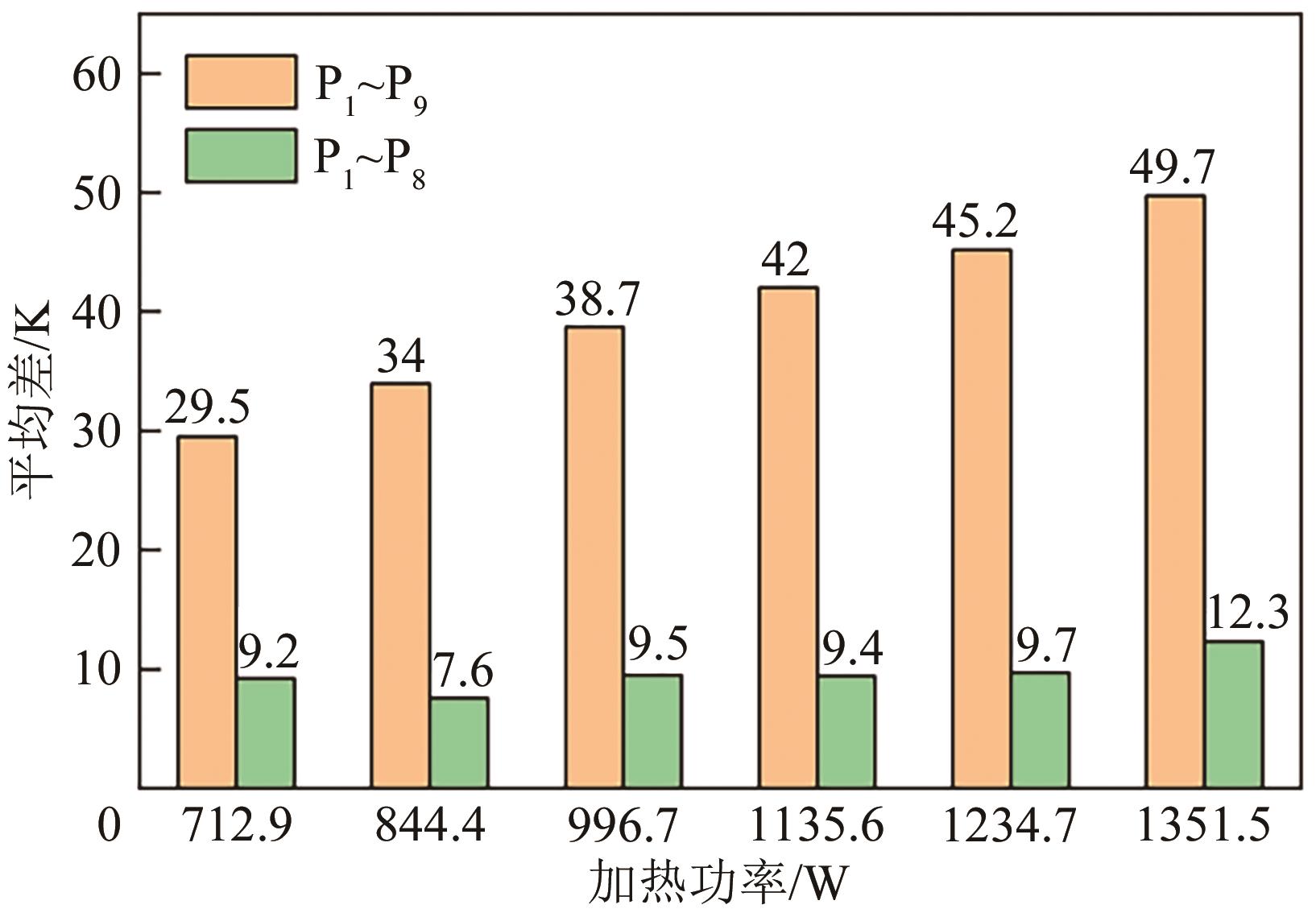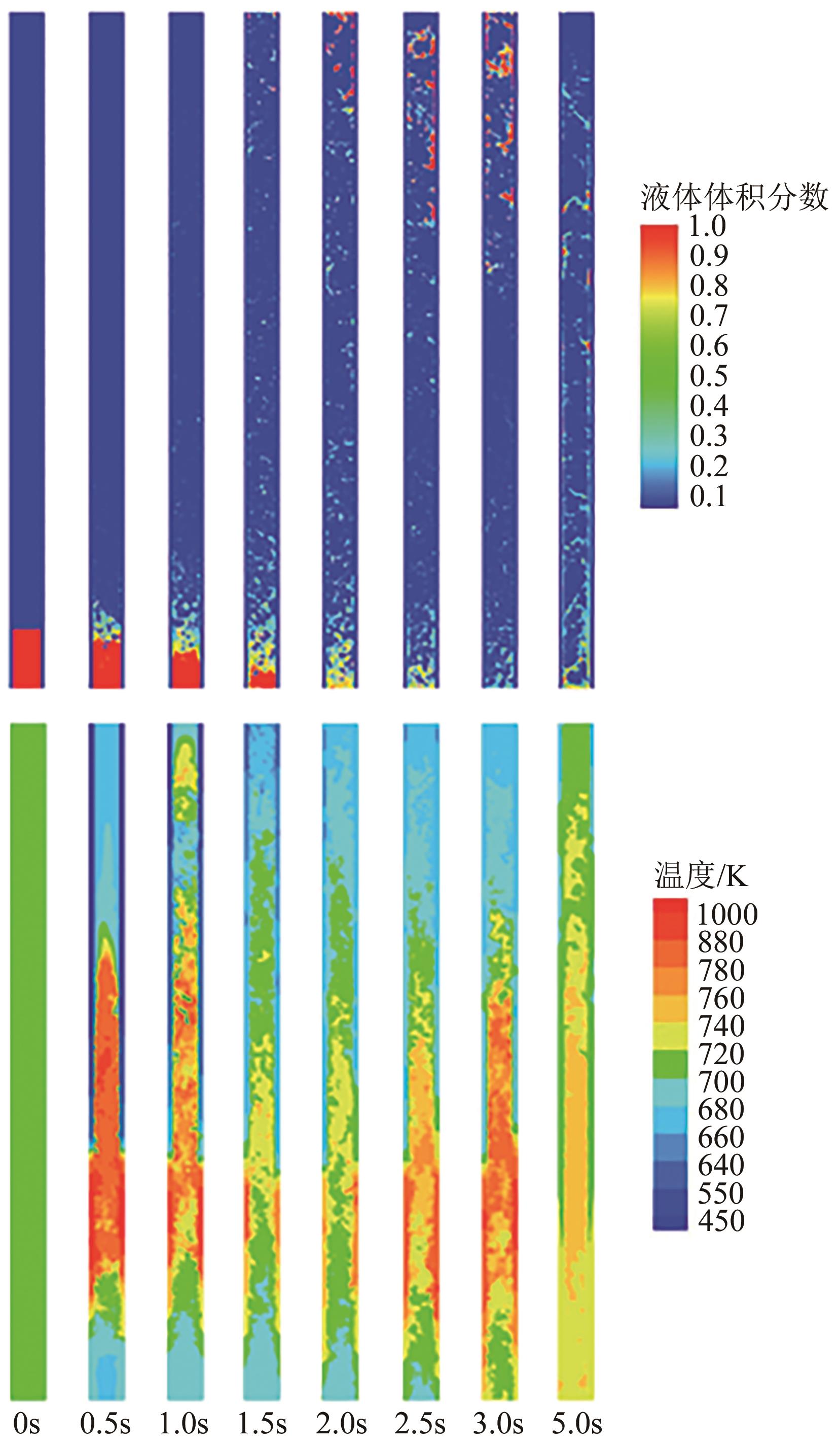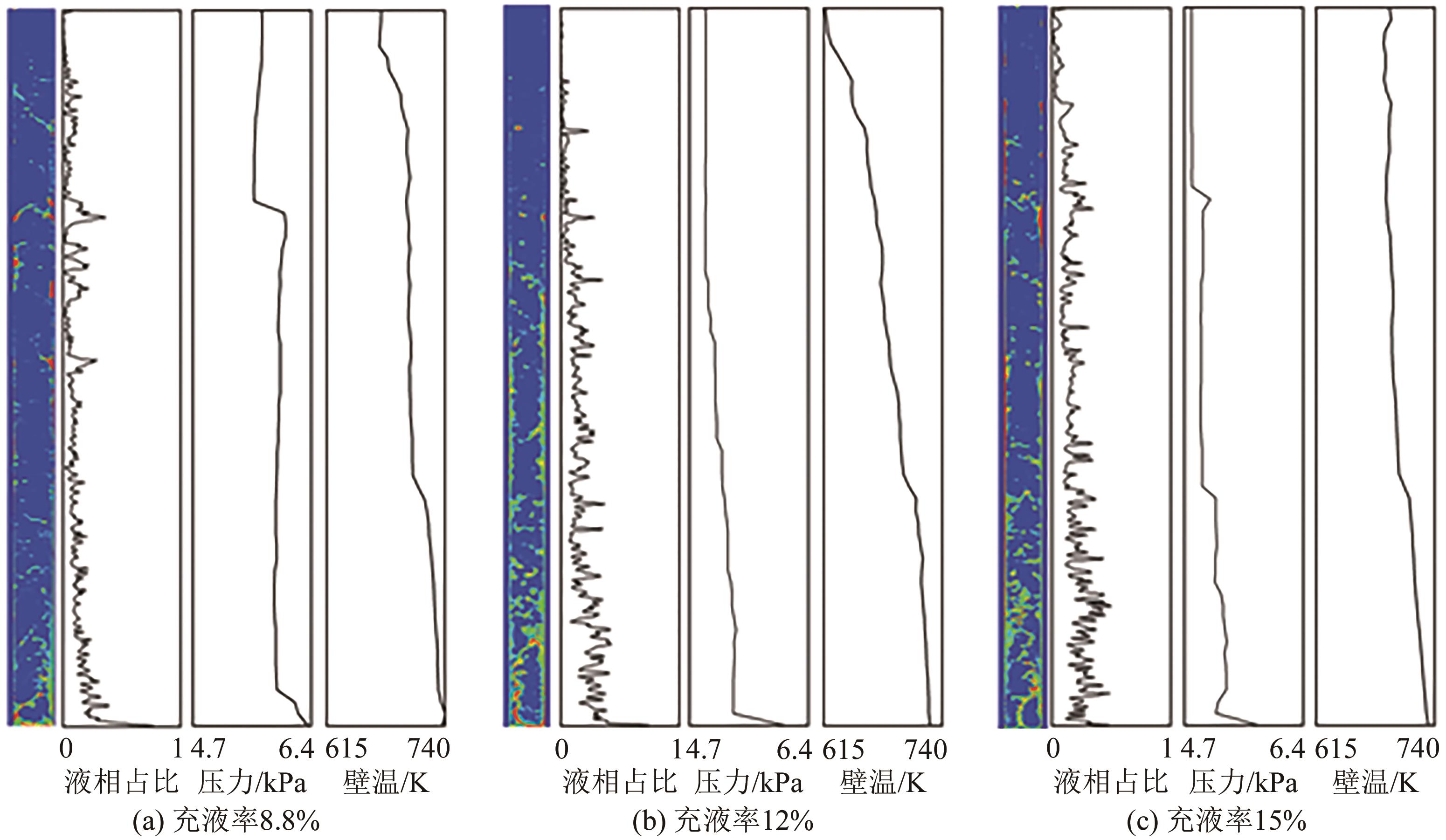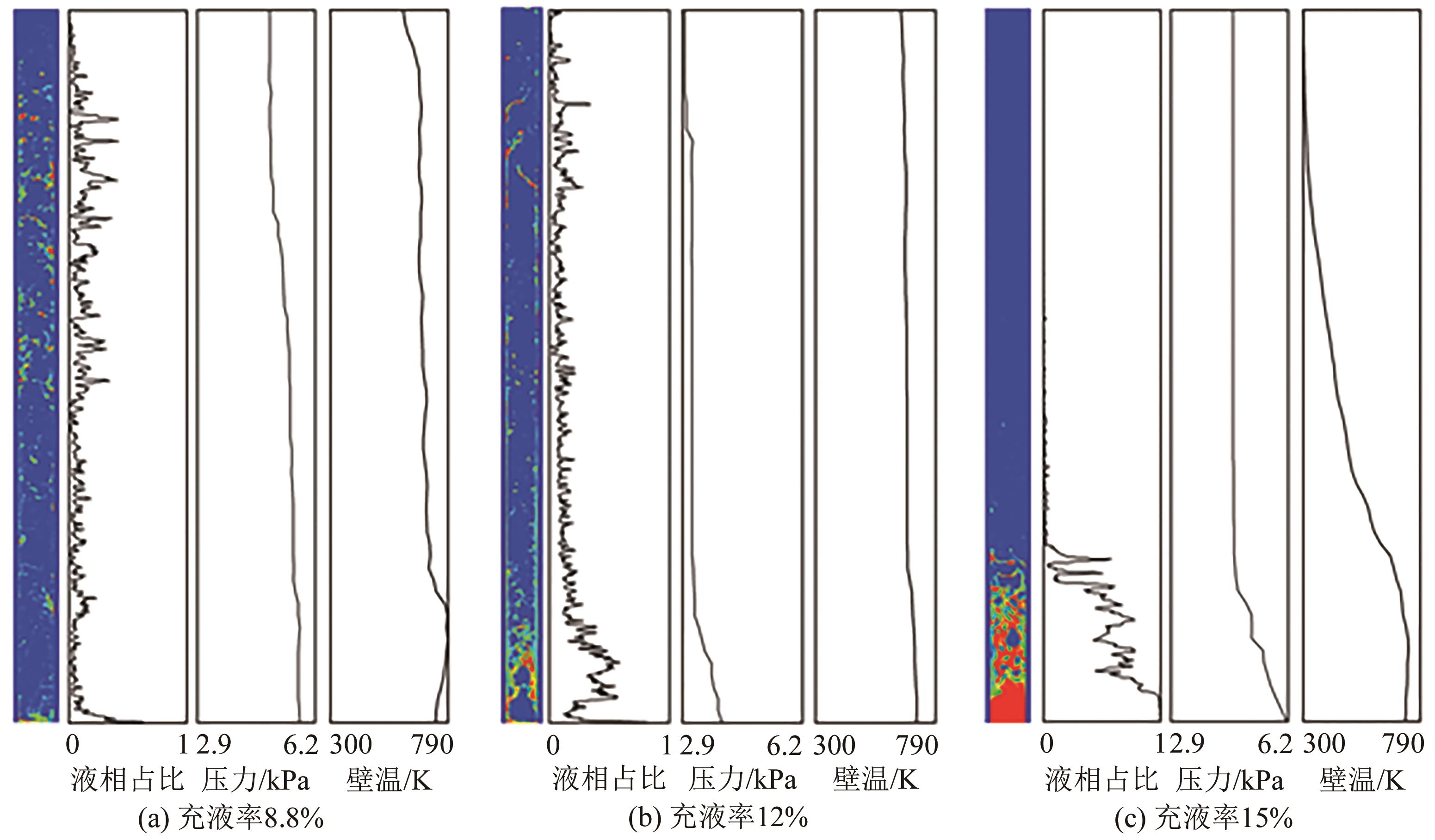| 1 |
FAGHRI Amir. Review and advances in heat pipe science and technology[J]. Journal of Heat Transfer, 2012, 134(12): 123001.
|
| 2 |
YANG Lin, LING Xiang, PENG Hao, et al. Starting characteristics of a novel high temperature flat heat pipe receiver in solar power tower plant based of “flat-front” startup model[J]. Energy, 2019, 183: 936-945.
|
| 3 |
ZHONG Guisheng, TANG Yong, DING Xinrui, et al. Experimental study of a large-area ultra-thin flat heat pipe for solar collectors under different cooling conditions[J]. Renewable Energy, 2020, 149: 1032-1039.
|
| 4 |
刘晓峰, 张昌建, 王雪, 等. 热管技术在矿井低温热能提取中的应用研究[J]. 低温与超导, 2021, 49(12): 85-90.
|
|
LIU Xiaofeng, ZHANG Changjian, WANG Xue, et al. Research on application of heat pipe technology in extraction of low temperature thermal energy in mines[J]. Cryogenics & Superconductivity, 2021, 49(12): 85-90.
|
| 5 |
Hyunjeong LIM, KIM Chanjoong, CHO Yeonjoo, et al. Energy saving potentials from the application of heat pipes on geothermal heat pump system[J]. Applied Thermal Engineering, 2017, 126: 1191-1198.
|
| 6 |
ZHANG Yin, GUO Kailun, WANG Chenglong, et al. Numerical analysis of segmented thermoelectric generators applied in the heat pipe cooled nuclear reactor[J]. Applied Thermal Engineering, 2022, 204: 117949.
|
| 7 |
余红星, 马誉高, 张卓华, 等. 热管冷却反应堆的兴起和发展[J]. 核动力工程, 2019, 40(4): 1-8.
|
|
YU Hongxing, MA Yugao, ZHANG Zhuohua, et al. Initiation and development of heat hipe cooled reactor[J]. Nuclear Power Engineering, 2019, 40(4): 1-8.
|
| 8 |
ZHU Xiaojun, LI Feng. Exploration on application of dredging thermal protection in the leading edge of the wing[J]. International Journal of Modern Physics B, 2020, 34: 2040105.
|
| 9 |
PENG Wengen, HE Yurong, WANG Xinzhi, et al. Thermal protection mechanism of heat pipe in leading edge under hypersonic conditions[J]. Chinese Journal of Aeronautics, 2015, 28(1): 121-132.
|
| 10 |
刘刚. 重力热管的工质选择[J]. 制冷与空调(四川), 2006, 20(1): 41-43, 12.
|
|
LIU Gang. Working fluid choicing for tow-phase closed thermosyphon[J]. Refrigeration & Air-Condition, 2006, 20(1): 41-43, 12.
|
| 11 |
WU F, SONG D, YI X, et al. Cesium heat-pipe thermostat[C]//AIP Conference Proceedings. Los Angeles, USA: AIP Publishing, 2013: 830-833.
|
| 12 |
张嘉睿, 田智星, 王成龙, 等. 液态金属高温热管传热极限研究[J]. 原子能科学技术, 2022, 56(10): 2024-2031.
|
|
ZHANG Jiarui, TIAN Zhixing, WANG Chenglong, et al. Study on heat transfer limitation of liquid metal high-temperature heat pipe[J]. Atomic Energy Science and Technology, 2022, 56(10): 2024-2031.
|
| 13 |
TIAN Zhixing, ZHANG Jiarui, WANG Chenglong, et al. Experimental evaluation on heat transfer limits of sodium heat pipe with screen mesh for nuclear reactor system[J]. Applied Thermal Engineering, 2022, 209: 118296.
|
| 14 |
FERRANDI C, IORIZZO F, MAMELI M, et al. Lumped parameter model of sintered heat pipe: Transient numerical analysis and validation[J]. Applied Thermal Engineering, 2013, 50(1): 1280-1290.
|
| 15 |
MUELLER Cole, TSVETKOV Pavel. A review of heat-pipe modeling and simulation approaches in nuclear systems design and analysis[J]. Annals of Nuclear Energy, 2021, 160: 108393.
|
| 16 |
焦永刚, 夏国栋, 周明正, 等. 基于“平面前锋”启动模型的计量用钠热管启动特性[J]. 化工学报, 2012, 63(3): 781-787.
|
|
JIAO Yonggang, XIA Guodong, ZHOU Mingzheng, et al. Starting characteristics of sodium heat pipe in metrology based on “flat-front” startup model[J]. CIESC Journal, 2012, 63(3): 781-787.
|
| 17 |
BUSSE C A. Theory of the ultimate heat transfer limit of cylindrical heat pipes[J]. International Journal of Heat and Mass Transfer, 1973, 16(1): 169-186.
|
| 18 |
何晓峰, 李淑兰, 赵宝珠. 热管的传热极限与热管尺寸的优化设计[J]. 河南科学, 1997, 15(4): 423-428.
|
|
HE Xiaofeng, LI Shulan, ZHAO Baozhu. Heat transfer limit and best measurements design of heat pipe[J]. Henan Science, 1997, 15(4): 423-428.
|
| 19 |
贾先剑, 郭航, 郭青, 等. 不同加热温度下钠钾合金热管传热性能[J]. 应用能源技术, 2016(3): 7-11.
|
|
JIA Xianjian, GUO Hang, GUO Qing, et al. Heat transfer performance of the sodium-potassium alloy heat pipe under different heating temperatures[J]. Applied Energy Technology, 2016(3): 7-11.
|
| 20 |
JI Yang, YUAN Dazhong, CHE Zhanxun, et al. Study on adaptive heat transfer performance of high temperature heat pipe[J]. Annals of Nuclear Energy, 2021, 163: 108536.
|
| 21 |
YANG Haiwang, WANG Chenglong, ZHANG Dalin, et al. Parameter sensitivity study on startup characteristics of high temperature potassium heat pipe[J]. Nuclear Engineering and Design, 2022, 392: 111754.
|
| 22 |
WANG Shuangfeng, CHEN Jinjian, HU Yanxin, et al. Effect of evaporation section and condensation section length on thermal performance of flat plate heat pipe[J]. Applied Thermal Engineering, 2011, 31(14/15): 2367-2373.
|
| 23 |
郭宇翔, 陈宏霞, 袁达忠, 等. 中温铯热管的启动及传热性能[J]. 化工进展, 2021, 40(11): 5981-5987.
|
|
GUO Yuxiang, CHEN Hongxia, YUAN Dazhong, et al. Startup and heat transfer performance of medium temperature cesium heat pipe[J]. Chemical Industry and Engineering Progress, 2021, 40(11): 5981-5987.
|
| 24 |
CHEN Hongxia, GUO Yuxiang, YUAN Dazhong, et al. Experimental study on frozen startup and heat transfer characteristics of a cesium heat pipe under horizontal state[J]. International Journal of Heat and Mass Transfer, 2022, 183: 122105.
|
| 25 |
SUN Hao, PELLEGRINI Marco, WANG Chenglong, et al. CFD simulation based on film model of high temperature potassium heat pipe at different positions: Horizontal, vertical, and 45° inclined[J]. Progress in Nuclear Energy, 2022, 154: 104442.
|
| 26 |
VALENTIN Guichet, BERTRAND Delpech, HUSSAM Jouhara. Experimental investigation, CFD and theoretical modeling of two-phase heat transfer in a three-leg multi-channel heat pipe[J]. International Journal of Heat and Mass Transfer, 2023, 203: 123813.
|
| 27 |
WANG Xiaoyuan, SHI Yuwen, LIU Tiancheng, et al. CFD modeling of liquid-metal heat pipe and hydrogen inactivation simulation[J]. International Journal of Heat and Mass Transfer, 2022, 199: 123490.
|
| 28 |
PANDA K K, DULERA I V, BASAK A. Numerical simulation of high temperature sodium heat pipe for passive heat removal in nuclear reactors[J]. Nuclear Engineering and Design, 2017, 323: 376-385.
|
| 29 |
余清远, 赵鹏程, 马誉高. 基于CFD方法的高温热管特性研究[J]. 核动力工程, 2022, 43(2): 70-76.
|
|
YU Qingyuan, ZHAO Pengcheng, MA Yugao. CFD analysis on characteristics of high temperature heat pipe[J]. Nuclear Power Engineering, 2022, 43(2): 70-76.
|
| 30 |
钱增源. 低熔点金属的热物性[M]. 北京: 科学出版社,1985: 180.
|
|
QIAN Zengyuan. Thermophysical properties of low melting point metals[M]. Beijing: Science Press, 1985: 180.
|
| 31 |
DE SCHEPPER Sandra C K, HEYNDERICKX Geraldine J, MARIN Guy B. Modeling the evaporation of a hydrocarbon feedstock in the convection section of a steam cracker[J]. Computers & Chemical Engineering, 2009, 33(1): 122-132.
|
 ), 郭宇翔1,2, 陈宏霞1,2(
), 郭宇翔1,2, 陈宏霞1,2( ), 袁达忠3,4, 杜小泽1,2
), 袁达忠3,4, 杜小泽1,2
 ), GUO Yuxiang1,2, CHEN Hongxia1,2(
), GUO Yuxiang1,2, CHEN Hongxia1,2( ), YUAN Dazhong3,4, DU Xiaoze1,2
), YUAN Dazhong3,4, DU Xiaoze1,2
